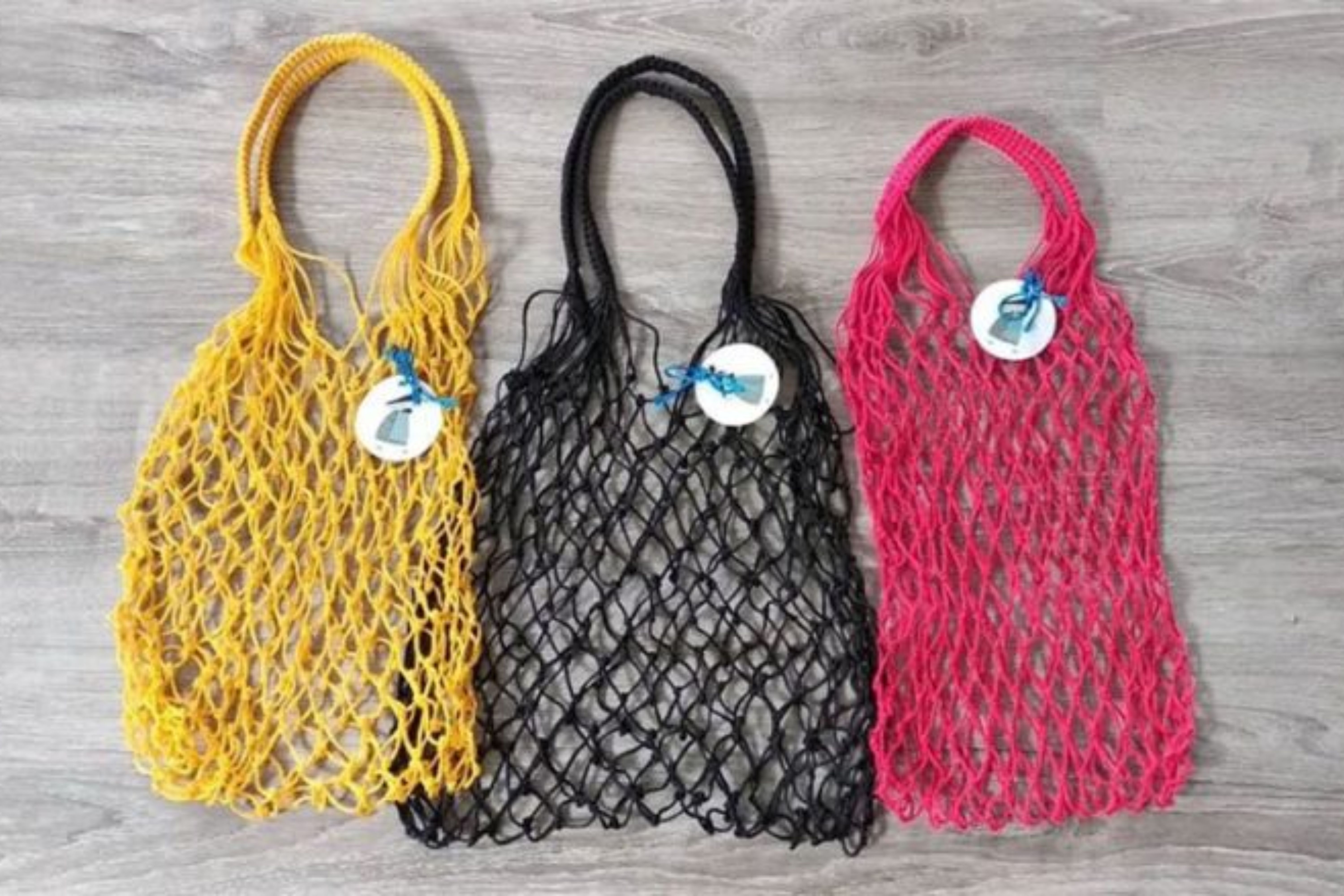
Latest information

Cholita Recicla, eco-design based in Galicia
The innovative Cholita Recicla project was launched five years ago in A Coruña with the key goal of transforming waste into resources. The first step was taken in Corme with the enhancement of a traditional trade, that of the "rederas". Hands and nets come together in an initiative that combines craftsmanship and circular economy to create handmade bags using the traditional system of tying and repairing nets.
They applied eco-design to marine waste and created a line of exclusive bags marketed online that are made from nets and pieces of nets recovered from the sea. The new gear gives a traditional craft a second chance.
This was the starting point of a more ambitious initiative that, according to its promoter, Gema Neira, has managed to give new life to many materials that were destined to be buried or incinerated. "It's a clear example of circular economy because we close the circle by creating something new," she sums up.
The Corme net menders were joined by colleagues from all over Galicia, and new proposals are continually being added to the range of bags, such as a line of urban equipment made from waste. The process consists of transforming garbage into benches, garbage cans, tables and other structures that, once they have fulfilled their new original function, can be shredded again and products with infinite lives can be obtained from them.
Cholita Recicla works in collaboration with numerous firms and companies, not only in Galicia, from whom they obtain the waste to be transformed. Their commitment goes beyond this, and they strive every day to attract local companies to generate local wealth and contribute to the population in rural areas through eco-design.
Gema Neira assures that everyone involved in the process of creating a product is excited about the result. Other elements have been added to the fishing nets, such as surplus fabrics from the hefty Galician industry, whose leftovers are shredded to make fabrics that were initially only destined for incineration. They will also be developing a new line of collaboration with a Portuguese company for the design of playgrounds using reused fishing nets.
The transformation of out-of-use textile fibres has allowed them to manufacture bags and other products, such as waterproof awnings or even urban equipment. This market niche has led Cholita Recicla to start a collaboration with the Vilagarcía de Arousa company Fundiciones Rey, with which they have designed and manufactured an eco-sewer that is unique in the world for its construction materials and into which they have also incorporated a grating of the material designed by a local artist. A product with which they have also managed to eliminate noise pollution.
Since it began, Cholita Recicla has served as an example of a recycling, social responsibility and circular economy project in specialised publications in countries around the world. Innovation, design and sustainability are the pillars of an idea that has grown thanks to online sales and word of mouth. They are participants in the Galician Innovative Materials Quarry, "which is a source of pride because it is part of the Xunta's (Galician Regional Government's) commitment to innovation and leads to very interesting contacts being made," Neira emphasises.
Among their new projects, a pair of slippers they created for the Xacobeo celebration, which they make within the framework of the global alliance for sustainable development. They'll mix the past through raw materials, the present through the transformation of fishing net filaments and the future through 3D printing.
Its street furniture is sold on the international market, in countries such as Germany, the USA and Mexico, as well as its sewage alternatives and bags. "Our proposals combine design and art, which is why we are an example of sustainability and why we are valued," says its promoter. Each bench they transform means recycling 100 kg of rubbish.